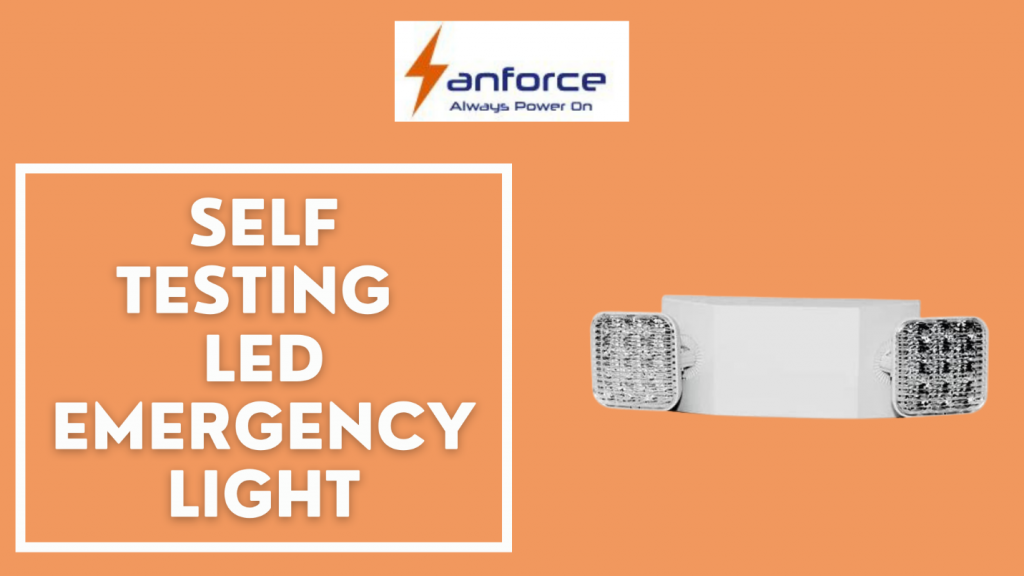With the use of LED emergency lights, businesses are currently maximizing the usage period of light illumination that allows work continuity along with the reduction of energy bills.
The testing of such an LED emergency light system is important to ensure that everything is working as it should. It is not difficult to perform tests on individual LED emergency light bulbs but the inspection of the entire installation is very labor-intensive and costly.
In the market, self-testing LED emergency lights are available with automatic testing functions. They reduce the burden of testing LED emergency light installations.
In this article, we will discuss self-testing LED emergency lights, how they work, and the benefits of using them.
So, let’s get started.

A self-testing LED emergency light is an LED emergency light that is able to automatically check whether its LED lamp and battery are operating normally or not by themselves.
If the system detects a problem, it will display a visual warning and produce a sound for the warning signal.
The self-testing feature of this type of LED emergency light replaces the manual tests required to be performed monthly and annually. Since there is no need for manual tests to be carried out, a self-testing LED emergency light system is a cost-effective solution for businesses.
Such lighting systems come up with intelligent warning technology that can indicate the type of problem detected in the system. So, the problem can be solved accordingly as quickly as possible.
Also, such self-testing lighting systems have easy initial swap or installation which makes them effective to meet regulations regarding fire safety.
The self-testing emergency light product comes with an automatic and self-test feature that is able to perform tests by itself complying with the requirements of the British standards.
Generally, the monthly tests of 10 minutes and yearly tests of 3 hours will be carried out automatically in addition to checking the condition of battery charge and other things.
When you install a self-testing emergency light product, the internal clock of the luminaire randomly assigns the date for the first month and first yearly test.
The first monthly test will generally be carried out between 16 and 30 days from the day of installation and then the monthly test will be carried out every 30 days.
The first yearly test will generally be carried out between 200 and 360 days from the day of installation and then the yearly test will be carried out every 360 days.
In case, no power is supplied to the self-testing emergency light product, the schedule of tests to be carried out will be remembered by the system generally for a period of 7 days.
1. Self-testing emergency light reduces the burden of testing. Also, the self-test is more reliable and effective than manual testing.
2. It is easy to install self-test emergency light products.
3. It is cost-effective and also saves time.
4. The automatic self-test doesn’t disrupt the normal operation of the businesses.
5. With staggered tests, all business locations are protected when there is a power outage.
Self-testing LED emergency lights will be a great solution for the emergency lighting needs of your business. Since it uses LED, you are able to reduce the energy bills & the self-test feature will reduce the burden of manual testing.
You can utilize the time that you have to invest in manual testing in your other important business works. Also, the self-test LED emergency lights system might be higher but their payback period is very short.
For self-testing LED emergency lights and other emergency lighting products, request a quote from Sanforce Technology – A leading manufacturer and distributor of quality and cost-effective emergency lighting products.
Not sure what you required for your lightining project ?
Get in touch with us for FREE consultation.